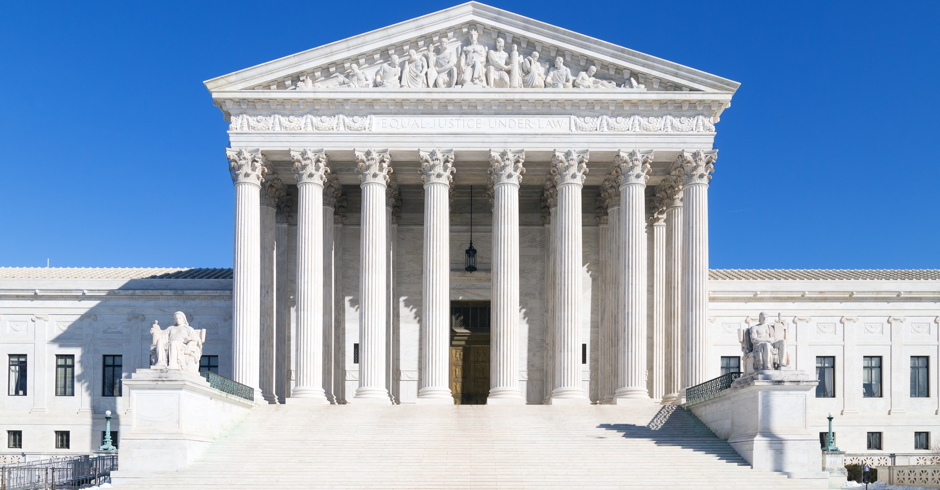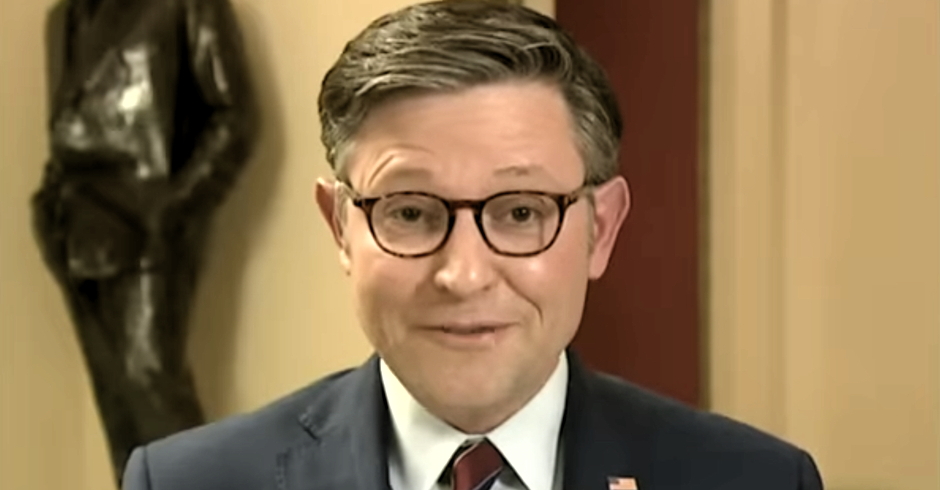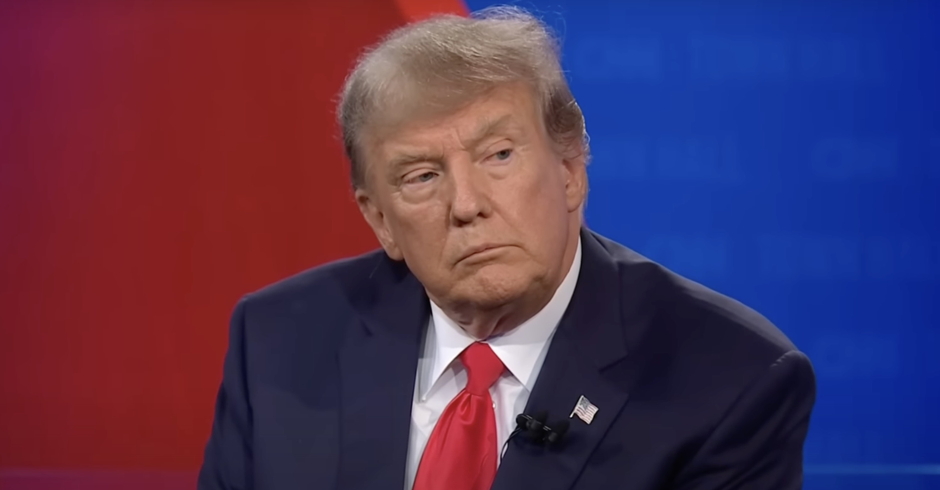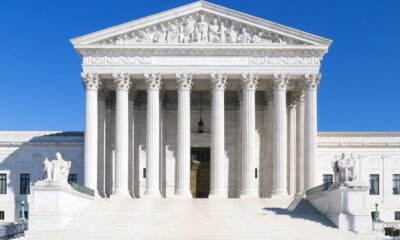Law, Unwrapped: Prop 8 Standing Is A Done Deal, What About The Merits?
Today, in a decision that surprised precisely no one (especially no one who’d listened to the oral argument), the California Supreme Court unanimously held that the official proponents of Proposition 8 had standing to appeal the decision that the measure violates the U.S. Constitution.
How did we get here? A quick review: When passed by voter initiative in 2008, Prop 8 defined marriage under the California constitution as limited to the union of one man and one woman. It thereby undid what the California Supreme Court had done earlier that same year when it had held that the denial of marriage licenses to same-sex couples violated the state’s constitutional guarantee of equal protection under the law.
In 2009, several same-sex couples took to federal court to challenge Prop 8 as a violation of the U.S. Constitution’s right to equal protection. (The California constitution is of course subordinate to the U.S. Constitution.) But who would defend Prop 8? The state, represented by the governor and the Attorney General, appeared in the case but did not defend the measure, as they agreed with the plaintiffs that the law was unconstitutional. The court then granted the motion of the proponents of Prop 8 (the anti-gay marriage folks) to intervene (non-legal translation: participate) in the case. Thus, it was the intervenors who put on the defense of the measure.
And a spectacularly unsuccessful defense it was. Only a few witnesses were ultimately called for the proponents, and their testimony will long be remembered as an “own goal” — helpful to the plaintiffs in admitting that allowing same-sex couples to marry would bring us closer to a just society, and thoroughly disastrous to the proponents and to the oppositionists more generally in failing to identify any purpose of marriage that would be furthered by the continued exclusion of same-sex couples. The plaintiffs (the pro-marriage equality folks) of course won.
Declining to throw good money after bad, the state declined to appeal. So the proponents decided they’d take up the mantle of defense.
But could they? Did they have standing to appeal when the state stayed out of it? The federal court of appeals (the Ninth Circuit) thought that the question might be one of state law, so they asked the California Supreme Court to get involved again, deciding whether to grant the proponents standing to appeal. Although the court could have declined the invitation, it did not; oral argument on the matter was held in September.
Today, the court issued its decision finding that there was in fact standing to appeal. This doesn’t need to bind the appellate court, but as a practical matter, it will. The Ninth Circuit wouldn’t have wasted everyone’s time getting an opinion from the state court if it was going to then ignore it. Yes, the appellate court still has to formally rule on standing, and then the plaintiffs could appeal that ruling to the U.S. Supreme Court. It’s likely, though, the court is finally going to get to the merits of the appeal and that, because of the way the California court decided the case, we’re done with the standing issue.
OK, that’s where we are. Why did the court find that the proponents have standing? And, um, what is “standing,” anyway?
For understandable reasons, not just anyone can sue, defend, or appeal. The courts are not a broad debating forum — there needs to be some concrete stake in litigation for a party to be able to participate. It’s also thought that those with such a stake will have the best incentive to put on the most throrough case, allowing the issues to be sharpened in a particular context.
In this case, the California Supremes identified two possible bases for standing: (1) the proponents might be said to represent the state’s interest in defending the measure; or (2) they might be able to claim, in their own right, a particularized injury from the declaration that Prop 8 is unconstitutional.
The second is problematic, and in its way speaks to the whole problem with the opposition to marriage equality. It’s hard to see how the proponents are harmed by allowing same-sex couples to marry — just as it’s hard (perhaps impossible, after this trial) to see how marriage equality harms anyone. Moreover, this idea of particular harm is one of federal constitutional dimension, so that if the California Supreme Court had decided on this basis, its decision could have been scrutinized under federal case law interpreting the requirement of particularized harm. In that case, the standing issue might have been kicked around for awhile.
The court shied away from this approach, instead basing standing on its view that state law gives Prop 8 proponents the right to assert the state’s own interest in the proposition. Because under California law, the court declared, the people, as they express themselves through the initiative process, are the state. The court discussed the origin of the process, created to give the people a stake in governance that the expansion of special interests was threatening. Although this sounds like a very modern concern, in fact the current initiative process is almost one hundred years old…in this sense, there’s nothing new under the sun.
And the court feared that if the state’s law executive branch doesn’t want to enforce the measure, then elected officials could effectively veto the people’s initiative by not defending it against constitutional attack.
This concern is of course overblown. First, most initiatives aren’t challenged in this way. Second, even if they are, the state’s unwillingness to defend a measure doesn’t mean that the court will find it unconstitutional. But the court is onto something when it says that there would be some compromise to the initiative process if no one will defend measures that voters pass. Whether that means there should also be a right to appeal is a slightly different question; the court disposed of this in a single footnote(!), noting that “[o]rdinarily…public officials…can be expected to appeal an adverse trial court judgment…The inability of the official proponents of an initiative measure to appeal an [adverse] trial court judgment…, when the public officials who ordinarily would file such an appeal decline to do so, would significantly undermine the initiative power.”
So there we are. On balance, the court is right even though the result is that Prop 8 will be in effect a bit longer. We should take the broader view here; whether or not we like the California initiative process (and I don’t), someone should be able to defend (and perhaps even appeal, although the argument isn’t as strong) what the people duly passed. In many other cases, we wouldn’t like the results if such standing were denied.
And there would be something limited about winning on what amounts to a technicality; better to win on the merits, as we deserve to. And the process will continue to educate the public about the benefits to all of society in recognizing committed, loving relationships between two adults. While it does so, it will continue to expose the fear and lies about our lives that drive people like the proponents — one of whom, by the way, dropped out rather than face scrutiny for his extreme views.
Bring it.
Related to today’s Prop 8 decision:
Prop 8: Anti-Gay Marriage Supporters Do Have Standing – What Today’s Decision Really Means
Prop 8: Read Today’s California Supreme Court Decision (Full Text)
Prop 8: LGBT And Anti-Gay Groups Respond To Today’s Supreme Court Decision
Prop 8: Watch What AFER – The Folks Fighting Prop 8 – Have To Say
 Were he born 10,000 years ago, John Culhane would not have survived to adulthood; he has no useful, practical skills. He is a law professor who writes about various and sundry topics, including: disaster compensation; tort law; public health law; literature; science; sports; his own personal life (when he can bear the humanity); and, especially, LGBT rights and issues. He teaches at the Widener University School of Law and is a Senior Fellow at the Thomas Jefferson School of Population Health.
Were he born 10,000 years ago, John Culhane would not have survived to adulthood; he has no useful, practical skills. He is a law professor who writes about various and sundry topics, including: disaster compensation; tort law; public health law; literature; science; sports; his own personal life (when he can bear the humanity); and, especially, LGBT rights and issues. He teaches at the Widener University School of Law and is a Senior Fellow at the Thomas Jefferson School of Population Health.
He is also a contributor to Slate Magazine, and writes his own eclectic blog. You can follow him on Facebook and Twitter if you’re blessed with lots of time.
John Culhane lives in the Powelton Village area of Philadelphia with his partner David and their twin daughters, Courtnee and Alexa. Each month, he awaits the third Saturday evening for the neighborhood Wine Club gathering.

Enjoy this piece?
… then let us make a small request. The New Civil Rights Movement depends on readers like you to meet our ongoing expenses and continue producing quality progressive journalism. Three Silicon Valley giants consume 70 percent of all online advertising dollars, so we need your help to continue doing what we do.
NCRM is independent. You won’t find mainstream media bias here. From unflinching coverage of religious extremism, to spotlighting efforts to roll back our rights, NCRM continues to speak truth to power. America needs independent voices like NCRM to be sure no one is forgotten.
Every reader contribution, whatever the amount, makes a tremendous difference. Help ensure NCRM remains independent long into the future. Support progressive journalism with a one-time contribution to NCRM, or click here to become a subscriber. Thank you. Click here to donate by check.
 |


















